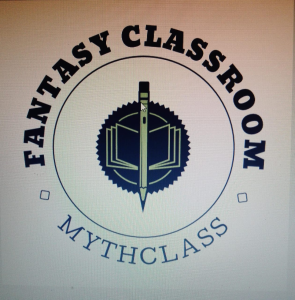- Teacher: Faith Moraa
Fantasy classroom
-
Welcome to your

Now, you are in control!
Moodle is an open-source Learning Management System (LMS) that provides educators with the tools and features to create and manage online courses. It allows educators to organize course materials, create quizzes and assignments, host discussion forums, and track student progress. Moodle is highly flexible and can be customized to meet the specific needs of different institutions and learning environments.
Moodle supports both synchronous and asynchronous learning environments, enabling educators to host live webinars, video conferences, and chat sessions, as well as providing a variety of tools that support self-paced learning, including videos, interactive quizzes, and discussion forums. The platform also integrates with other tools and systems, such as Google Apps and plagiarism detection software, to provide a seamless learning experience.
Moodle is widely used in educational institutions, including universities, K-12 schools, and corporate training programs. It is well-suited to online and blended learning environments and distance education programs. Additionally, Moodle's accessibility features make it a popular choice for learners with disabilities, ensuring that courses are inclusive and accessible to all learners.
The Moodle community is an active group of users, developers, and educators who contribute to the platform's development and improvement. The community provides support, resources, and documentation for users, as well as a forum for sharing ideas and best practices. Moodle releases regular updates and improvements, ensuring that the platform remains up-to-date with the latest technologies and best practices.
Links of interest:
(You can edit or remove this text)
Available courses
- Teacher: Faith Moraa
EDUCATIONAL PSYCHOLOGY
A course in educational psychology typically explores the psychological principles and theories relevant to learning and teaching in educational settings. Here's a brief summary of what such a course might cover:
-
Introduction to Educational Psychology: Overview of the field, its history, and key concepts.
-
Theories of Learning: Exploration of various learning theories such as behaviorism, cognitivism, constructivism, and socio-cultural theories.
-
Developmental Psychology: Understanding how children and adolescents develop cognitively, emotionally, and socially, and its implications for education.
-
Motivation and Learning: Examination of factors that influence motivation, including intrinsic and extrinsic motivation, goal setting, and self-regulation.
-
Cognitive Processes in Learning: Study of memory, attention, problem-solving, and critical thinking skills and their applications in education.
-
Individual Differences in Learning: Discussion on how factors such as intelligence, learning styles, and cultural backgrounds impact learning outcomes.
-
Classroom Management: Strategies for creating a positive and conducive learning environment, handling behavior problems, and promoting student engagement.
-
Assessment and Evaluation: Techniques for assessing student learning, including formative and summative assessment, standardized testing, and alternative assessment methods.
-
Instructional Strategies: Examination of effective teaching methods, differentiation, and instructional design principles.
-
Special Education and Inclusive Practices: Understanding the needs of diverse learners, including students with disabilities, and strategies for promoting inclusion and equity in education.
-
Technology in Education: Exploration of the role of technology in teaching and learning, including digital tools, online learning platforms, and educational software.
-
Educational Psychology Research: Introduction to research methods used in educational psychology, critical evaluation of educational research, and application of research findings to practice.
Overall, the course aims to provide students with a comprehensive understanding of the psychological principles underlying learning and teaching and equip them with practical strategies for promoting effective teaching and learning outcomes in educational settings.
- Teacher: Faith Moraa
